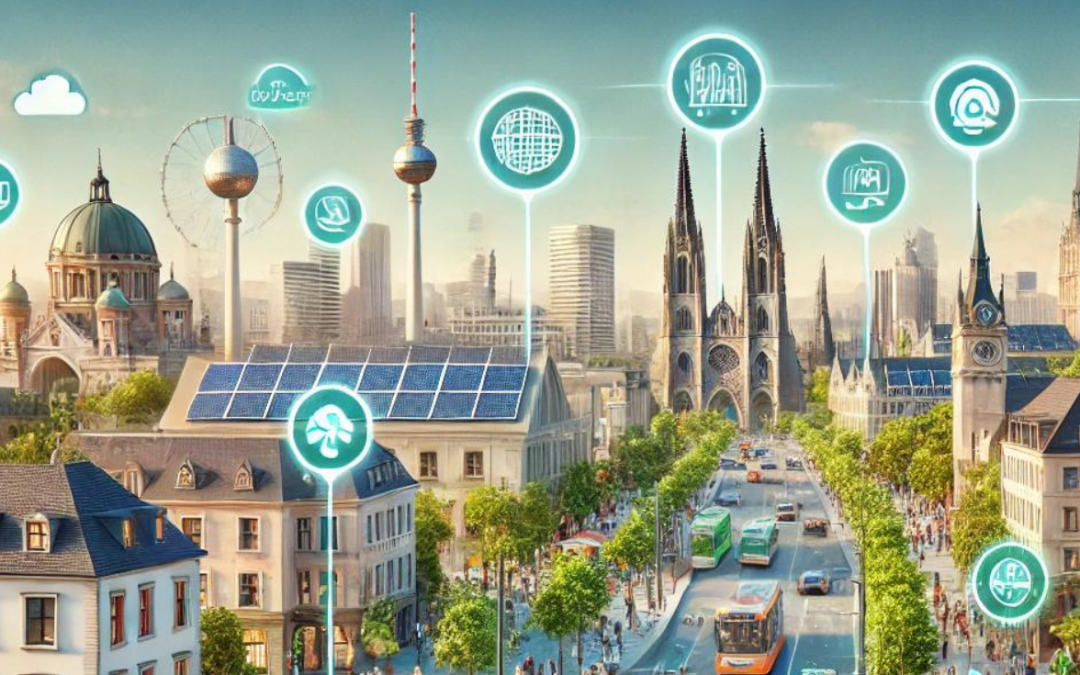The European Tourism Landscape: Challenges and Opportunities
Tourism is a vital pillar of the European economy, drawing millions of visitors to both iconic destinations like Paris, Barcelona, and Rome, as well as smaller towns and cities that experience significant tourist influxes. However, this surge in visitors presents a host of challenges, including overcrowding, infrastructure strain, and environmental impact. Municipalities must carefully balance the goal of boosting tourism revenue with managing these pressures, particularly as they strive to extend the average duration of visitor stays, which directly translates into increased revenue from tourism taxes and local spending. For major cities like Barcelona, as well as smaller destinations facing similar pressures, sophisticated crowd management strategies are essential to prevent the overburdening of popular sites, ensure a positive visitor experience, and preserve the cultural and environmental integrity of these locations.

Introducing the Smart Tourism Project: Harnessing AI and IoT for Urban Innovation
In response to these challenges, Thinkz, in collaboration with Libelium, has developed the Smart Tourism Project. This cutting-edge solution integrates advanced AI and IoT technologies to revolutionize how cities manage and enhance their tourism sectors. The project provides real-time, actionable insights that empower cities to optimize tourist flows, improve visitor experiences, and drive sustainable urban development.

The platform uses IoT sensors deployed across the city to gather data on tourist attractions, cultural sites, and transportation options. This data feeds into an AI-driven platform that offers dynamic updates and personalized recommendations, allowing tourists to access real-time information about which attractions are less crowded, where to find eco-friendly mobility options like shared e-scooters or bikes, and which routes offer the best air quality.
Key Use Cases and Benefits
The Smart Tourism Project is before everything made for the visitors and the citizens to offer a better journey experience. It also addresses several critical needs in urban tourism management:
- Real-Time Tourist Mobility: By analyzing tourist behavior, the platform helps cities optimize transport options such as shared bicycles, e-scooters, and shuttle buses. This enhances the visitor experience while supporting the city’s efforts to reduce congestion and promote sustainable travel.
- Tourist Attractions and Facilities: The platform centralizes data on cultural sites, tourist facilities, and real-time crowdedness levels, enabling visitors to plan their day effectively and avoid congested areas. This ensures a smoother, more enjoyable experience for tourists while helping the city manage its resources more effectively.
- Sustainability: The project encourages eco-friendly practices by promoting sustainable micro-mobility options and providing information on environmentally friendly travel routes. This contributes to the city’s sustainability goals and aligns with broader European objectives for reducing carbon emissions.
Visitors enjoy a richer, more immersive experience while municipalities gain valuable data insights. The project helps increase the length of stays, boost bookings for tourist attractions, and encourage repeat visits. By centralizing data and analyzing tourist behavior, cities can plan more effectively, promote sustainability, and support the 2030 goals.
European Standards and Quick Deployment
The Smart Tourism Project is not only eligible for European funding but also fully GDPR-compliant, adhering to the highest standards of data privacy and security. Designed to integrate seamlessly with existing IoT infrastructures, cities with established networks can deploy this platform quickly and cost-effectively. This adaptability makes it ideal for municipalities across Europe, ensuring they can enhance their tourism offerings while maintaining compliance with European regulations.
The project is ready for rapid deployment in cities with existing IoT infrastructure, offering a cost-effective, time-efficient solution. Municipalities can quickly integrate this platform into their existing systems and start reaping the benefits of enhanced tourist management and sustainability.
Conclusion: A New Standard for Smart Tourism
The AI and IoT Smart Tourism Project by Thinkz and Libelium sets a new benchmark for urban tourism management. This AI and IoT Smart Tourism Project provides cities with the tools they need to enhance visitor experiences, optimize resource management, and promote sustainability. As tourism remains vital to the European economy, managing it efficiently and sustainably is increasingly important.
This project not only helps cities attract more visitors but also extends the duration of stays, driving greater economic benefits through increased tourism revenue. By centralizing data and offering real-time insights, the Smart Tourism Project empowers cities to plan more effectively and respond dynamically to tourists’ ever-changing needs.
The platform’s eligibility for European funding, GDPR compliance, and rapid deployment capabilities make it an ideal solution for cities looking to stay ahead in the competitive tourism market. Whether enhancing the visitor experience, promoting sustainable practices, or supporting the broader goal of carbon neutrality, the Smart Tourism Project is poised to revolutionize how cities manage tourism, setting a new standard for smart, sustainable urban development across Europe.
Download the full project here
Do you want to optimise your tourist experience?
Contact us!
Contact
